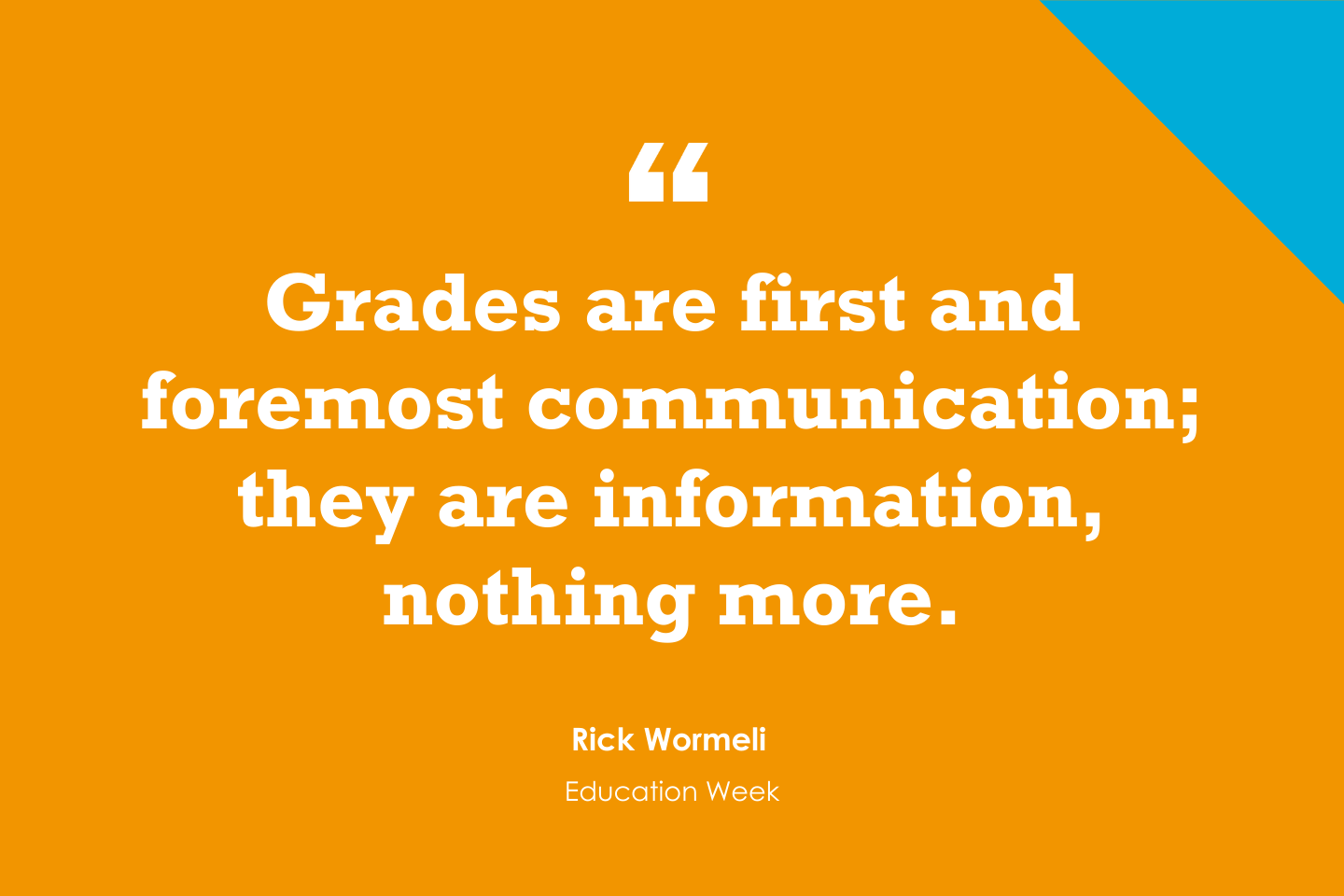
As regular readers know, I’ve been doing the Classroom Q&A column over at Education Week for thirteen years.
And I plan to continue doing it for quite a few more years.
I have so many contributors now, though, that there really isn’t space there for my annual thematic compilation posts, where I collect links to all the posts on particular topics.
So, I’m starting to do it here instead, and this is the twelfth one.
Today’s theme is on Assessment:
What’s the Best Way to Grade Students? Teachers Weigh In
There are many ways to make grading a better, more productive experience for students. Here are a few.
Students Will Miss Deadlines. How Teachers Should Respond
Adults miss deadlines all the time. Should there be a double standard for kids?
Late Assignments: Tips From Educators on Managing Them
Try setting two deadlines, a preferred due date for the majority and a hard deadline for those facing various challenges.
‘School Leaders Have 99 Problems, But NAEP Scores Ain’t One’
Let’s Take a Holistic Approach to Judging Schools
Parents wouldn’t judge their kids based on a single factor. So, says Ron Berger of EL Education, why must schools use a lone test score? Read more.
Let’s Dump the Obsession With Standardized Testing
Digital portfolios and student, faculty, and family surveys to gauge school culture are more robust ways to measure school effectiveness. Read more.
It’s Time to Debunk the Myths About Standardized Tests
Professional learning communities can help crack the code to measuring a student’s success. Read more.
How Can You Measure a School’s Success? It’s Not Just Through Test Scores
Judge schools on how well they meet the needs of students, staff, and the community, say educators. Read more.
Using Rubrics for ‘Targeted Feedback’
Three educators discuss the why’s and how’s of rubrics for assessment. Read more.
Rubric Do’s & Don’ts
Six educators share their thoughts on rubric use in the classroom. Read more.
Alternatives to Standardized Tests During a Pandemic Year
Three educators suggest alternatives to federally mandated standardized testing during this year undercut by COVID-19. Read more.
*Students Should Not Believe a Grade ‘Defines Who They Currently Are’
A three-part series on how to handle grading is “wrapped up” today with commentaries by Dennis Griffin Jr, Scott Wurdinger, and Douglas Reeves.
*Teachers Can Implement ‘Equitable Grading’
Joe Feldman, Julia Thompson, Madeline Whitaker Good, and Andrew Sharos share their ideas on how teachers can handle grading student work.
*Grades Should Be a ‘Feedback Tool’
Alfonso (Al) Gonzalez, Cathy Vatterott, Heather Wolpert-Gawron, and Cindy Garcia “kick off” a three-part series on best grading practices.
* How to Assess Students’ Math Skills Remotely
Two math educators discuss how they are communicating student performance during the school closure crisis, as well as how they are taking care of themselves.
*The Value of Having Students Evaluate Teachers
This three-part series about students evaluating teachers is “wrapped up” today by Shaeley Santiago, Amy Fast, Sheila B. Robinson, Ed.D, Jennie Farnell, Gary Armida, and Douglas Reeves.
* Student Feedback on Teachers Should Be a ‘Part of More Classrooms’
Dr. PJ Caposey, Kate Wolfe Maxlow, Karen Sanzo, Rachael Williams, Andrea Clark, and Donna L. Shrum discuss whether students should evaluate teachers.
*Ways to Have Students Evaluate Classes
Roxanna Elden, Adeyemi Stembridge, Kathy Dyer, Sheila M. Wilson, and Madeline Whitaker Good share their ideas about students evaluating teachers and classes.
* The Role of Student-Test Scores in Teacher Evaluations
David Berliner, Kathleen Neagle Sokolowski, Douglas Reeves, Timothy Hilton, Amanda Koonlaba, and Erin Scholes share their thoughts on the role of student-test scores in teacher evaluations.
* Response: Teacher Evaluations Need to ‘Support, Not Sort’
This post includes responses from American Federation of Teachers President Randi Weingarten, California Teachers Association (past) President Dean Vogel, and 2012 National Teacher of the Year Rebecca Mieliwocki.
* Using Teacher Evaluations ‘to Promote Growth’
This column features contributions from Julian Vasquez Heilig (with Lisa Hernandez), Ben Spielberg, David Berliner, and Paul Bruno.
* Ways to Improve Standardized Tests
Douglas Reeves, Jennifer Borgioli, Kristin DeJong, Chris Gareis, and Leslie Grant explore how state standardized tests can be improved.
* Performance Assessment Can Be an ‘Equity Strategy’
Lee Jenkins, Shane Safir, Andrew Miller, Matt Renwick, and Barbara Blackburn share their ideas on using performance assessment with students.
* Performance Assessments Are ‘Absolutely Worth the Effort’
Joshua Dragoon, N. Chaunte Garrett, Travis Bristol, Kristina Doubet, and Eric Carbaugh contribute their thoughts on using performance assessment in schools.
* Performance Assessments Are ‘Adaptable, Accessible, and Forgiving’
Mike Kaechele, Allison Zmuda, Bena Kallick, Elizabeth Leisy Stosich, and Jennifer Borgioli define performance assessment and how to use it in the classroom.
* Making Grading Practices ‘Specific, Constructive, & Timely’
Myron Dueck, Kristina Doubet, Jessica A. Hockett, Roxanna Elden, Mark Barnes, and Bill Ivey share their suggestions on effective grading practices.
* Assessing Students on ‘What Really Counts’
Today’s post features commentaries from Andrew Miller, Suzie Boss, Meg Riordan, Abbie Sewall, Daniel Schwartz, and Vicky Layne on how to assess students in today’s world.
* Assessments for Today’s Students
Kristina Doubet, Heather Wolpert-Gawron, Thomas Guskey, Thom Markham, and Nancy Sulla contribute their thoughts on assessment in today’s classroom.
* Formative Assessments Are ‘Powerful’
Jennifer Serravallo, Andrew Miller, Daniel R. Venables, Brady E. Venables, and Larry Ainsworth are contributors to this post.
* The ‘Secret Sauce’ of Formative Assessment
This column includes contributions from Libby Woodfin, Tony Frontier, Laura Cabrera, and Alice Mercer.
* ‘The Grading System We Need to Have’
Rick Wormeli, the well-known educator, author, and speaker, provides the primary response in this post. In addition, several readers contributed their own thoughts.
* High-Stakes Testing & Student Engagement
Three author/educators, Michael Opitz, Michael Ford, and Bryan Harris, share their guest responses in this post.
* Ways to Include Students in the Formative-Assessment Process
Author and educator Amy Benjamin, California teacher Cheryl Suliteanu, and I offer our suggestions.
* Several Kinds of Grading Systems
Professor Thomas R. Guskey, author Susan M. Brookhart, educator Bill Ivey, and I share our thoughts and practices.
* Standardized -Test Critiques & Potential Alternatives
Professors David C. Berliner and Yong Zhao offer their thoughts on the topic.
* Helping Long-Term ELLs & Evaluating ELL Teachers Fairly
Katie Hull Sypnieski, the best teacher I’ve ever seen in the classroom, and staff from the American Federation of Teachers researching teacher evaluation contribute their responses.
* Ways the “Next Generation” of Standardized Tests Should Treat ELLs
Representatives from the two groups of states preparing the new assessments, the SMARTER Balanced Assessment Consortium, or SBAC, and the Partnership for Assessment of Readiness for College and Careers Consortium, or PARCC, contribute responses.
As regular readers know, I’ve been doing the Classroom Q&A column over at Education Week for thirteen years. And I plan to continue doing it for quite a few more years. I have so many contributors now, though, that there really isn’t space there for my annual thematic compilation posts, where I collect links Ed Week Teacher Larry Ferlazzo’s Websites of the Day…





